
6 minute read
Loyalty Day 2022


Advertisement
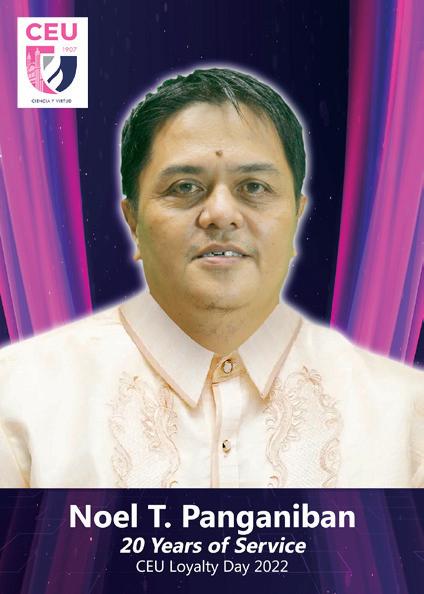
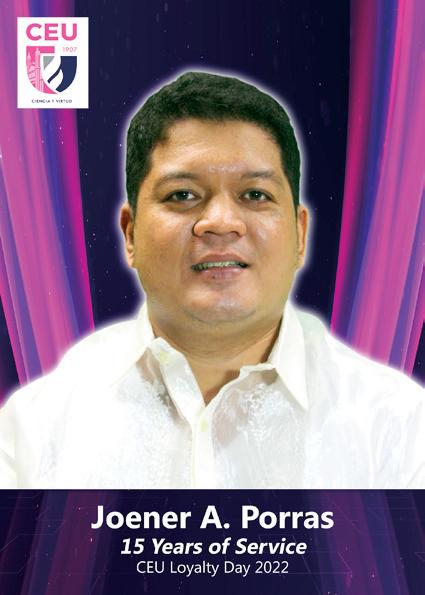
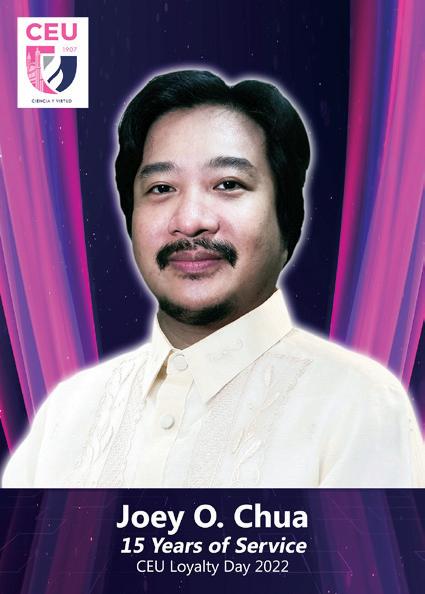
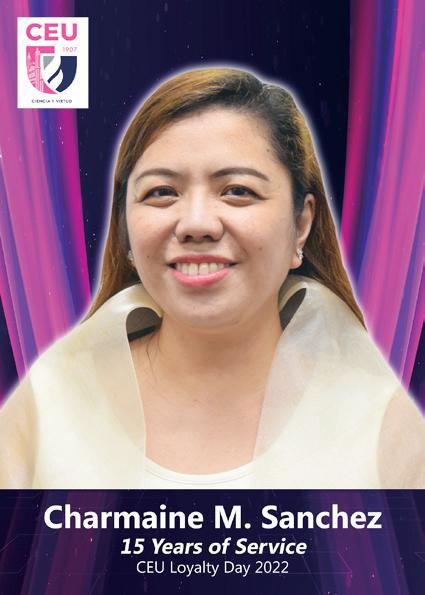

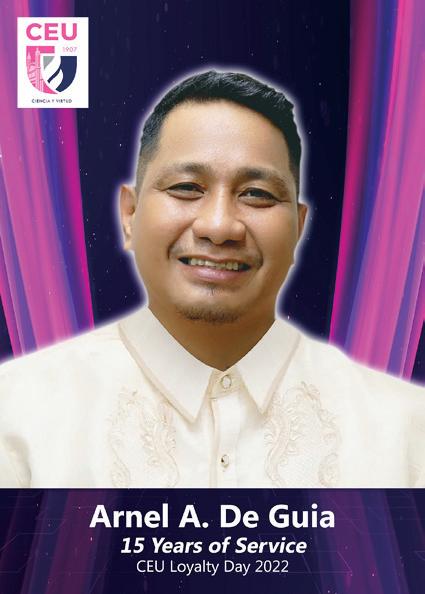


all in travelling to other countries.
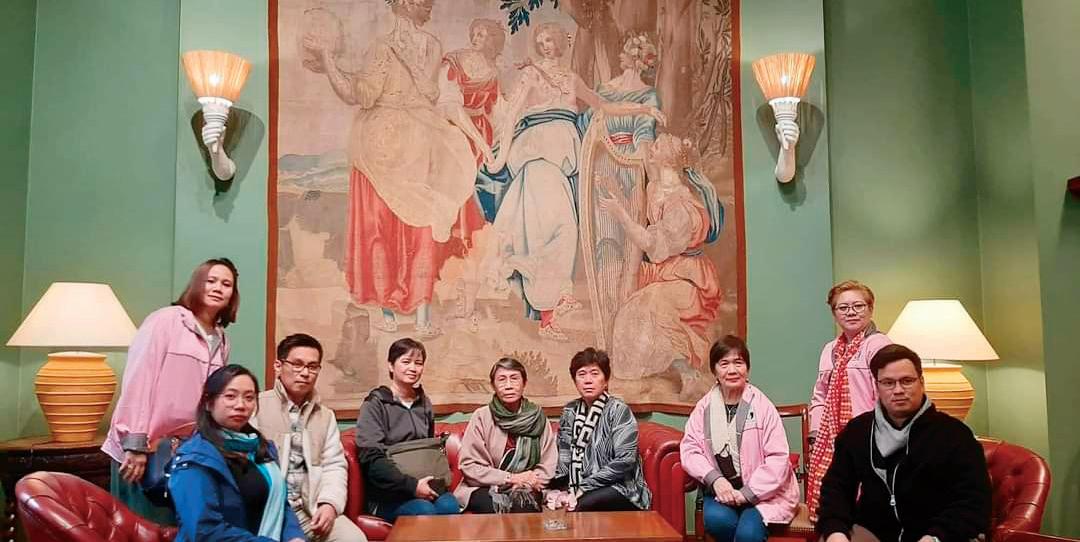
Three of our partner schools—PUP, WVSU, and Saint LaSalle now offer the program in their respective schools. CEU and USEP are expected to follow suit. Our study visit to the continent is part of the 3-year project where the Philippine delegation was hosted by our three counterpart-schools in Europe. We were separated into three groups: some went to the University of Groningen; others flew to the University of Bologna; and my group went to the University of Deusto. We were expected not only to share what we have done in our respective assignments, but to immerse ourselves in the challenges that their students also face in their respective societies. The highlights of each group’s tour include the presentation of work output and the visits to other education and non-government institutions that address the needs of students in the challenged areas.
After our long and exhausting trip, my group arrived in Bilbao Spain. Bilbao is a port city located in Northern Spain and considered to be one of the most important ports in the Basque country. This highly industrialized city produces and exports railway equipment, aeronautical equipment, automobiles, chemicals, hand and machine tools, tires, and papers. Dr. Alex Rayòn, Vice Rector of International Relations at Deusto University shared that Bilbao is the most industrialized city in Spain contributing 25 percent of the country’s gross domestic product (GDP). We were greeted by their amazing buildings, clean streets, and beautiful bridges; some of which are well maintained and preserved because of their historical origins.
On our first day, we presented our work at Deusto University, a Jesuit-run University built in early 1886, and one of the two higher education institutions in Bilbao (the other one is the University of Basque Country founded in 1968). We were able to roam this beautiful university with its historical structures and classical churches inside the campus. I was particularly awed with its conference hall where students and faculty members converge at the beginning of every school year. Its dissertation room is another museum-like building where research defenses of their PhD students are being held. Once you are inside these buildings, you can’t help but reflect on their rich cultural past by looking at the engraved paintings on the roof and walls.
The challenge of multiculturalism
After our meeting at the University of Deusto, we visited Comunidades Educativas, an institution that takes care of children coming from different racial backgrounds. The center was a longkilometer walk from the University. The center’s 28 year old director said that many of the children they now take care of came from South Africa. Some called these kids “gypsies,” a social stigma that has been associated with their Romani clan whose members are dispersed in different parts of Europe and North and South America. Deusto University has its own share of taking care of immigrants. Dr. Rayòn said that they are now taking care of hundreds of student-immigrants from Ukraine who were dispersed by the ongoing war between Ukraine and Russia. The university created a specialized program for those student-immigrants and also takes care of their families.
In the Philippines, we are facing different challenges that are unique to every social context you will find yourself into. These challenges include poverty and inaccessibility to basic commodities, insurgency, multiculturalism, lack of classroom and facilities, geographical location of schools, and climate conditions. Europe’s main challenge on the other hand is multiculturalism. In the Philippines we don’t have racial categories, but our different ethnic backgrounds also prevent us from arriving at a single Filipino identity. This multicultural condition preoccupies the effort of advocates in most European countries working in challenged areas. The objective has always been how to integrate those children coming from different racial backgrounds into their own ways of life by teaching them not just their language but more importantly, their culture.
In our meeting in Brussels Belgium, Dr. Robert Wagennar, the project coordinator and director of the International Tuning Academy in Groningen shared that about
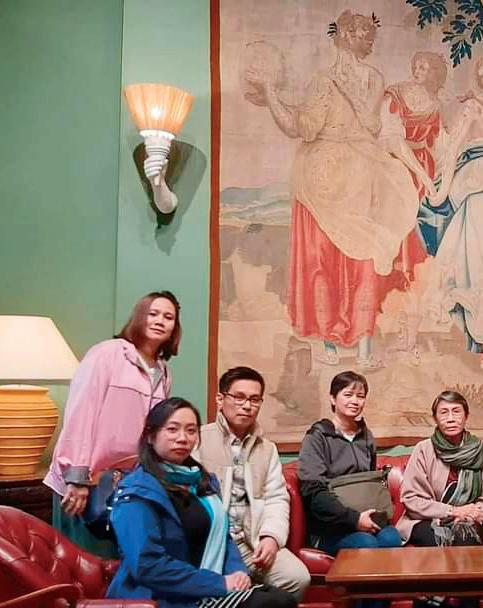
8.5 million people have been displaced in Europe, and this number might still increase given the prolonged war between Russia and Ukraine. Europe, he said, might look very wealthy on the outside, but it has its own share of poverty with 20 percent of its population living below the poverty line. With the ongoing war, this number of poor people can still increase with a lot of refugees dispersed across the continent. This condition will surely add up to the challenge of multiculturalism in Europe.
Wine and Time: a “cultural obligation” and work ethic in Spain
One of our memorable experiences in Spain is the drinking of wine at every meal we had to partake in. I said jokingly to a colleague that if we stay longer in Bilbao, we might end up being drunk every day because we drink wine for breakfast, lunch and dinner. Our de facto tour guide, Dr. Edurne Bartolome Peral of Deusto University whose strict time management scared all of us a bit, said that drinking wine at every meal is almost considered a “cultural obligation”.
Another interesting center we visited on the second day of our Bilbao tour was a group who teaches music to young kids. The director of the center shared that the idea of putting up an informal music school for kids coming from different racial backgrounds originated from Latin America when they had a chance to visit there. They replicated such an amazing advocacy. Children who joined the school didn’t have the same level of understanding and skills in playing musical instruments, but the center patiently taught them how to play. They have been participating in local and international contests since then, a proof that this cultural advocacy is indeed doing an amazing job. In a video presentation, one of the kids shared a heart-warming reflection to all of us. She said that when she plays an instrument, it’s as if all her problems vanish and makes her feel happy and proud.
My insatiable curiosity about small things happened during one of our lunch sessions with Edurne at Deusto. Because it was my first time interacting with a “first world” culture, I asked her why they are so strict with the time. I mean, in all honesty, our Filipino culture doesn’t promote such a kind of work ethic in terms of time management. She told me an answer which for most of us is expected, but it actually strikes at the heart of our unexamined work values. She said that they are strict with time because time is associated with productivity. The more you follow the time you set to a particular activity, the more you can achieve many things in the process. You make this a habit, and the result is amazing. In my mind, people are considered to be the main drivers of economic growth in any society, no wonder that those highly industrialized countries sustain their economic performance because of this work ethic among their population.
The Belgium experience
All of us in Project FORTH convened in Brussels, Belgium for the final phase of our study visit to Europe. There, we met other groups who visited the University of Groningen in the Netherlands and Bologna University in Italy. Our first day in Brussels, where the European Commission’s office is located, was very fruitful. We presented again our respective work for the project. We were informed later on that the
Commission was very impressed with what we have accomplished so far, with some suggestions to improve particularly on the website of the Project FORTH.
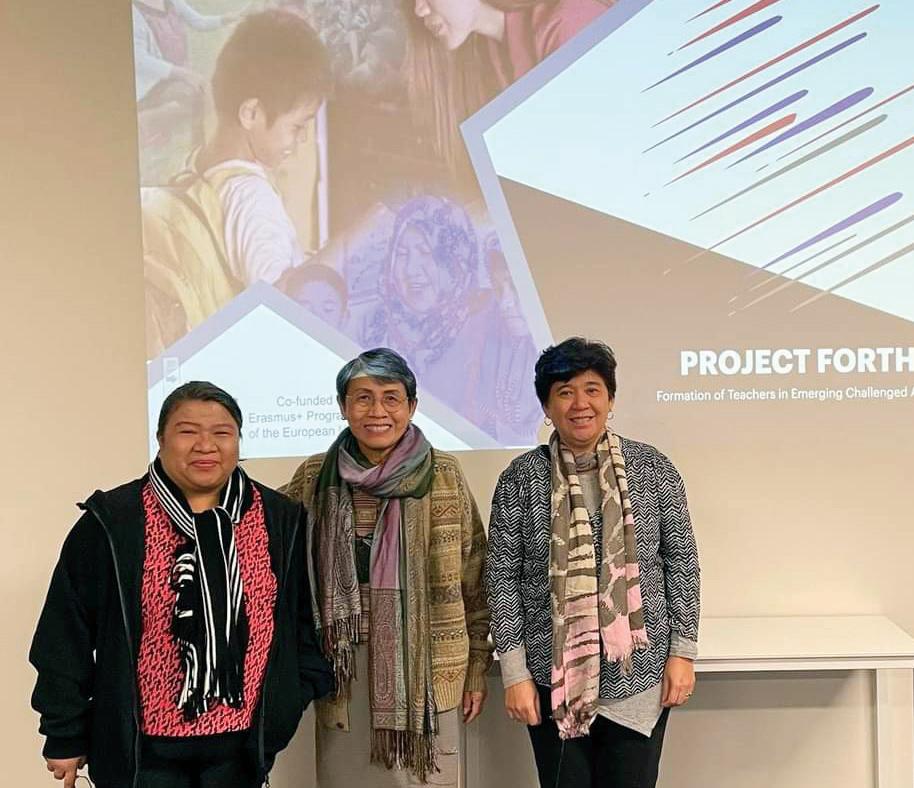

Fruitful not only because of the learnings we had on this beautiful city of chocolates and waffles, but the impressed as well with the buildings and houses that delighted our eyes as we roamed the city. Our friends from Project FORTH shared their unique experiences in their visits to different schools.
Majority of unforgettable experiences shared were about the travels and encounters with foreign cultures.

For example, two of my colleagues experienced a slight form of discrimination by some local citizens when they rode the train in Europe. Some had their worst experience in catching a train schedule or airplane security issues.
But on the whole, whatever experiences we encountered along the way in our study visit in Europe, we all agreed that those are important events that make up this unforgettable experience. In the process of going in and out of Europe, we learned a lot of things. In fact, even at the early stage of our preparations for this study visit, we already expected to face some of these scenarios.
Going home, we were tired and exhausted, but we were happy and fulfilled at the same time. If there is one thing that this Europe tour taught us all, it is that no one can escape the challenges of life. Indeed, interacting with foreign cultures is not an easy thing, but a challenge our team had to bravely face.










